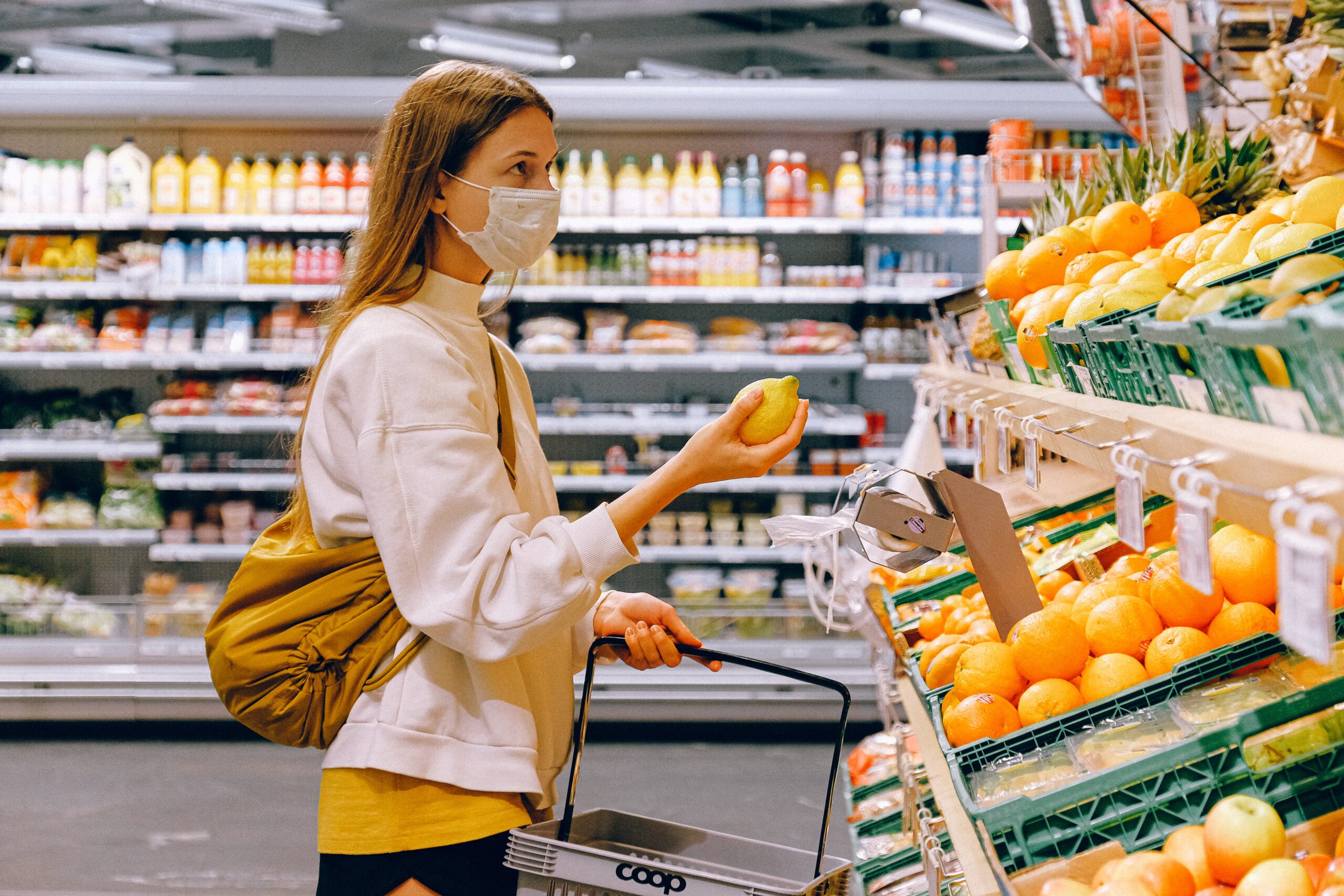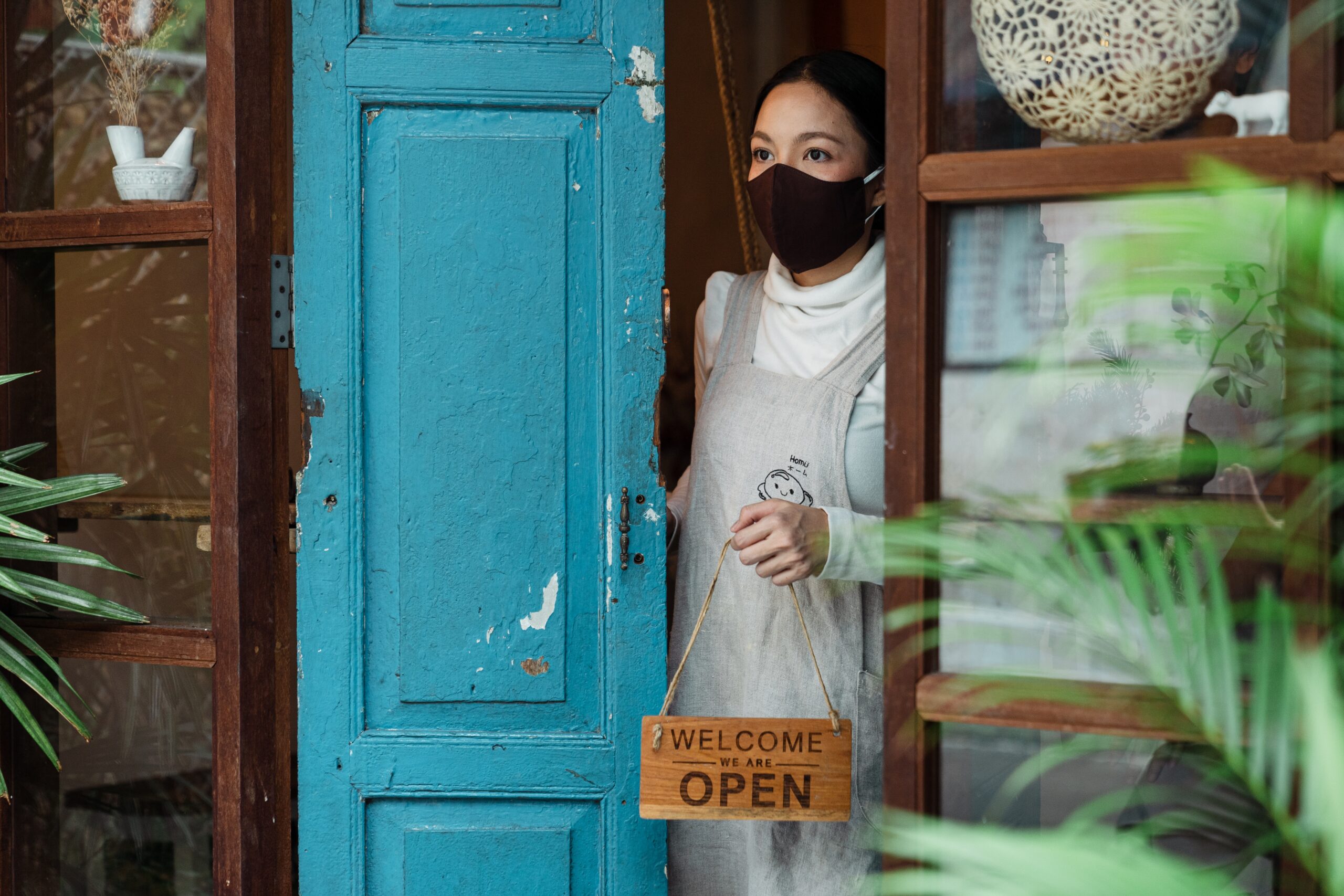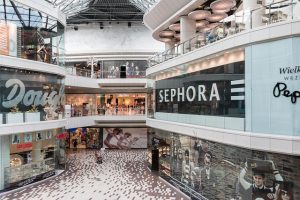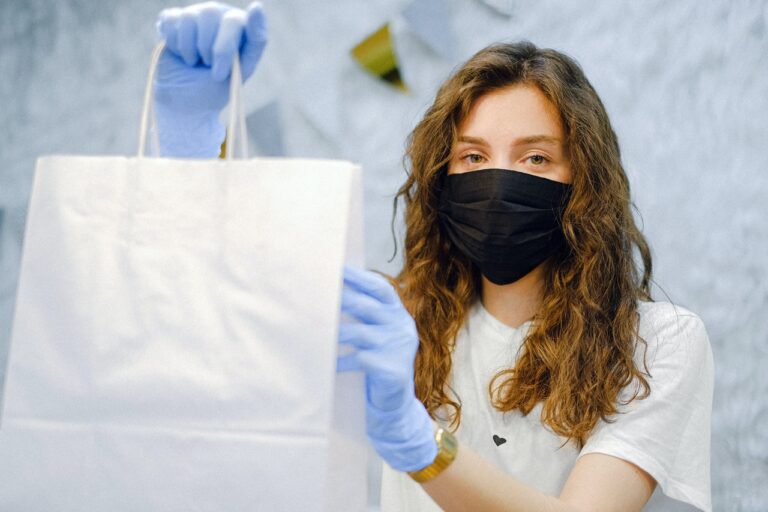By Alastair Lockwood
The policies relating to the mandatory use of face masks or face coverings in public places vary widely across countries, states and cities. Whilst there is still some confusion over when and where they should be used, medical expert Alastair Lockwood (MA, BM BCh, FRCOphth, PhD) has long held the belief that they should be worn in all close contact situations, and most certainly in the retail environment.
16 years ago, Mr. Lockwood was part of a randomized control study which unequivocally demonstrated a reduction in saliva droplet travel when masks were used by surgeons during ophthalmic procedures. The saliva was dyed with a colouring, so it was evident when not wearing masks just how far the droplets could travel and how much of the surgical site could become contaminated. Even at the start of the coronavirus outbreak, Mr. Lockwood advocated the use of face masks in any close contact situation and continues to recommend their use.
Here, Mr. Lockwood reveals why wearing face masks in stores is essential to helping the retail sector to survive while the experts battle to find either a vaccine or a suitable treatment.
Face masks do reduce droplet transmission

Do they work, are they effective, what’s the point of wearing them? There are many questions like this asked regarding the clinical effectiveness of face masks or face coverings, and yes, if not used correctly, there is a risk that you could inadvertently end up infecting yourself if you happen to be exposed directly to the virus, BUT the general consensus is that wearing a mask is designed to protect others more than yourself. If you are asymptomatic and cough in a store queue for example, you are less likely to disperse the virus in your saliva droplets if you are wearing a mask. It’s simple science.
The risk is real
The media have been accused of sending mixed messages when it comes to the severity of infection levels in a particular region, but the fact of the matter is that Coronavirus remains present across the globe. Even those places with minimal cases are likely to have some circulating undetected, particularly due to the asymptomatic nature of the virus in some human hosts. The reality is that this virus can cause serious complications and sadly, death, in some patients, and there isn’t much evidence right now to show why some people react so severely while others don’t. This means we must continue to act as thought the virus could cause serious complications to anyone, and err on the side of caution at all times. We owe this to our fellow neighbours who may just be one of those for who the virus could be life threatening.
Compliance gives retailers more chance of surviving

It’s clear that we will only truly be able to lift restrictions when there is a vaccine or a widely available and suitable treatment that minimises the likelihood of serious illness or death. But that is likely to be some time away yet, if indeed it comes at all. This means that for the foreseeable, we need to get some sort of movement happening in the economy, even if we can’t progress full steam ahead. Wearing face masks helps to delay infection transmission while suitable vaccination or detection methods are in development. It is hoped that in time there will be a pin prick test similar to those used to monitor diabetes, which would provide an immediate result. Such a test would clearly be hugely beneficial in keeping transmission at bay, but until then, we must all do our part to keep infection levels as low as possible. Face masks are just one of the ways that we can achieve this, and help to reduce the levels of transmission that are occurring in public settings.
About the author
 Alastair Lockwood (MA, BM BCh, FRCOphth, PhD) is a consultant ophthalmologist specialising in glaucoma, currently residing at the Queen Alexandra Hospital in Portsmouth, UK.
Alastair Lockwood (MA, BM BCh, FRCOphth, PhD) is a consultant ophthalmologist specialising in glaucoma, currently residing at the Queen Alexandra Hospital in Portsmouth, UK.
Related Articles

The Rise of Digital Experience Platforms (DXPs) in Software Development
Software development is evolving, as Digital Experience Platforms enable the delivery of a personalised digital cross-channel experience. A DXP delivers integrated content, Artificial Intelligence, and low-code rapid application development tools. It streamlines the work of developers as well as marketers.

7 Employee Benefits That Can Help Your Business Increase Staff Retention
With so many businesses vying for the attention of skilled job candidates, it’s becoming more important to look for ways to make your offerings more appealing by adding unique perks that not every employer does.

How Retailers Can Prepare for the Summer 2025 Shift
Rather than focusing on isolated touchpoints or departmental KPIs, journey management provides a way to understand where the most critical pain points lie and how to resolve them systematically across the business.

Retailers Are Drowning in Data – Journey Management Could Be the Lifeline
Rather than focusing on isolated touchpoints or departmental KPIs, journey management provides a way to understand where the most critical pain points lie and how to resolve them systematically across the business.



 for the latest news and job opportunities in retail tech
for the latest news and job opportunities in retail tech 